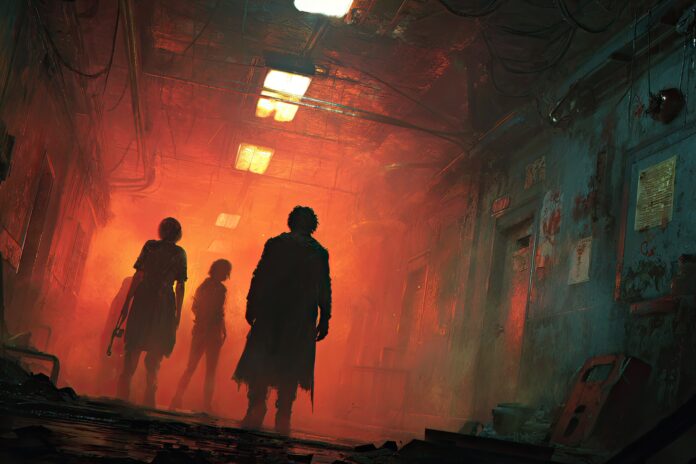Tim Miller X-Men Horror Movie: An Untold Chapter in Superhero Filmmaking
Tim Miller X-Men horror movie is an intriguing chapter in superhero cinema, representing a bold vision that ultimately never reached the silver screen. After his breakthrough success with Deadpool, Tim Miller’s creativity seemed perfectly positioned to shake up the X-Men franchise. Most importantly, his idea ventured away from the typical superhero formula, aiming instead for something genuinely unsettling and genre-defying.
How the X-Men Horror Movie Concept Originated
Following the surprise success of Deadpool in 2016, Miller became a sought-after figure for exciting, unconventional projects within Fox’s Marvel universe. Because X-Men comics frequently delve into dark themes—alienation, fear of the unknown, mutant abilities manifesting in traumatic ways—Miller saw untapped potential to explore the mutant mythos through a horror lens. He shared in recent interviews that he pitched various ideas, envisioning a narrative packed with suspense, dread, and the looming threat of the unknown. Instead of simply pitting heroes against villains, Miller wanted to explore what happens when the very powers that set mutants apart become the stuff of nightmares.
The Ambitious Vision: Blending Comic Lore and Classic Horror
Superhero movies often follow a tried-and-true structure, with high-stakes battles and inevitable redemption arcs. Instead, Miller’s ambition was to weave classic horror elements—claustrophobic settings, psychological tension, and genuine scares—with the established canon of the X-Men. Therefore, characters like Magik, Wolfsbane, and Mirage, whose abilities have eerie or supernatural dimensions, were natural fits for this narrative. He imagined mutants confronting both external threats and their deepest emotional fears, allowing the audience to see their vulnerabilities in a raw, haunting way.
Why Horror Fit the X-Men Better Than Many Think
For decades, the X-Men series has leaned into the social anxieties mutants face, such as prejudice, exclusion, and the terror of losing control. Besides that, storylines like the Demon Bear Saga or Proteus arcs have always danced with horror, even if most movie adaptations downplayed these themes. Miller recognized this unique intersection and proposed a story where the horror genre’s atmosphere would magnify these underlying anxieties. In essence, he sought to make viewers feel as isolated and frightened as the mutants themselves. This was not about monsters from another world; it was about the monsters inside and the fear of being different.
What Set Miller’s X-Men Film Apart from The New Mutants
Some may draw parallels to 2020’s The New Mutants, which adopted horror undertones. However, Miller’s vision was even bolder. While The New Mutants played with jump scares and supernatural threats, Miller intended to root the terror in realistic, relatable experiences and the psychological trauma that often comes with being a mutant. He saw opportunities for suspenseful, atmospheric storytelling, with less reliance on flashy effects and more emphasis on character-driven horror—perhaps closer to Alien or The Shining than traditional superhero fare.
Studio Challenges: Creative Risks and Franchise Hesitations
So, why didn’t the Tim Miller X-Men horror movie ever materialize? Although Fox had a history of taking risks with R-rated features—most notably with Deadpool—executives felt nervous about swerving too sharply from the action-packed formula that had made X-Men a household name. Moreover, with Fox preparing for its eventual acquisition by Disney, uncertainty clouded ambitious, boundary-pushing projects. Behind the scenes, creative differences and questions about marketability stalled Miller’s pitch. Studio leaders worried that a pure horror film could alienate core fans or complicate the character continuity at a delicate transition point for the franchise.
Learning from Missed Opportunities
The story of Miller’s almost-made X-Men film is a compelling example of Hollywood’s delicate balancing act: weighing innovation against established brand expectations. However, the project’s near-miss doesn’t reflect a lack of demand for bold storytelling. Audiences have welcomed genre experimentation in the past—just look at the acclaim for Logan’s gritty, neo-Western approach or the Deadpool series’ subversive humor. Therefore, Miller’s proposal underscores the untapped potential within superhero cinema for pushing genre boundaries. Had his project moved forward, it might have carved out a new audience for superhero horror—or at least inspired further experimentation by rival studios.
The Future of Superhero Horror: Is There Still Hope?
As Marvel’s cinematic universe continues to expand and evolve, the door for genre-bending projects remains slightly ajar. Disney’s exploration of the multiverse, along with recent discussions about mature themes in future projects (such as Deadpool 3), suggests that audiences—and, increasingly, studios—are open to fresh perspectives. Because fan interest in unique superhero tales is higher than ever, and the horror genre itself is enjoying a creative boom, the dream of a Tim Miller X-Men horror movie isn’t entirely dead. It’s possible that in the coming years, especially with streaming platforms hungry for distinctive content, this concept could resurface in a new form—perhaps even with Miller at the helm.
Closing Thoughts: Imagining the Legacy of Miller’s Unmade Film
For now, the Tim Miller X-Men horror movie remains an unrealized vision, a fascinating “what if” in a landscape where superheroes and horror are rarely blended with true intensity. This story reminds creators and fans alike that innovation often emerges from the willingness to take risks and reimagine familiar worlds. Most importantly, it highlights the value of daring storytellers like Tim Miller, who are prepared to step beyond the expected and challenge both the audience and the industry. Whether Miller’s haunting vision sees the light of day or not, it will undoubtedly continue to inspire conversations around superhero storytelling for years to come.
For more on Tim Miller’s creative process and speculation about unmade comic book films, visit Collider’s feature interview and check out Screen Rant’s deep dive.



